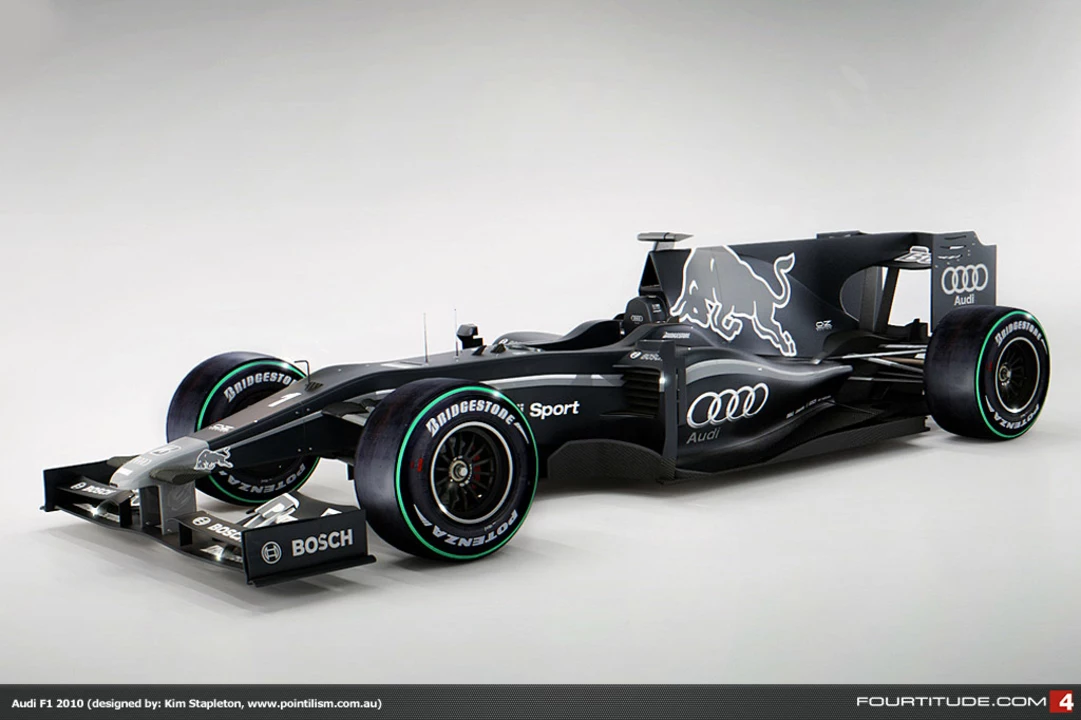Why Audi is not in F1 Racing?
The History of Audi and Motorsport
To understand why Audi is not in Formula 1 racing, we first need to take a look at their history in motorsport. Audi has had a long and successful involvement in various racing series, most notably in endurance racing, such as the 24 Hours of Le Mans, and in touring car championships like the DTM (Deutsche Tourenwagen Masters).
Audi has been synonymous with endurance racing since the early 2000s, with multiple victories at the prestigious 24 Hours of Le Mans race. Their dominance in this field was achieved through their innovative use of diesel and hybrid powertrains, which allowed them to outlast their competitors in these grueling, long-distance races.
In the touring car scene, Audi has also tasted great success, particularly in the DTM series in Europe. With numerous championships under their belt, Audi has proven that they can compete at the highest level in multiple disciplines of motorsport.
Formula 1's Unique Challenges
Formula 1 is unlike any other form of motorsport, presenting unique challenges and demands for manufacturers who choose to participate. The level of technological advancement, engineering precision, and relentless pursuit of performance improvements in F1 is unmatched in any other racing series.
The cost of entry into Formula 1 is also extremely high, with teams requiring significant investment in infrastructure, personnel, and research and development. This can be a deterrent for manufacturers like Audi, who have already established themselves in other forms of motorsport and may not see the return on investment that they would like from F1.
Additionally, Formula 1 has a strong focus on the development of internal combustion engine technology, which may not align with Audi's current strategy and vision for the future of transportation. This brings us to the next point.
Audi's Focus on Electric and Autonomous Technologies
Audi has been heavily investing in the development of electric and autonomous vehicle technologies in recent years. The company is committed to becoming a leader in sustainable mobility and is working towards a future where electric vehicles and self-driving cars are the norm.
This focus on electric and autonomous technologies means that Audi's resources and attention are directed away from internal combustion engine development, which is still the cornerstone of Formula 1 racing. As a result, Audi may not see F1 as the best platform to showcase their technological advancements and brand identity.
The Volkswagen Group Connection
Audi is a part of the Volkswagen Group, which includes several other high-profile automotive brands such as Porsche, Lamborghini, and Bugatti. This connection to the Volkswagen Group has implications for Audi's potential involvement in Formula 1 racing.
For one, the Volkswagen Group has had a difficult relationship with F1 in the past, with former group chairman Ferdinand Piëch being a vocal critic of the series. Moreover, the group's focus on electric and autonomous technologies, as well as the fallout from the "Dieselgate" emissions scandal, have further distanced the Volkswagen Group from pursuing F1 involvement.
Additionally, the Volkswagen Group has a history of strategically allocating its motorsport resources among its various brands. For example, Porsche has had a successful run in endurance racing, while Lamborghini has focused on GT racing. With this in mind, it is possible that the group sees no need to enter Audi into Formula 1 when other brands within the group are already competing in various racing series.
Formula E and Audi's Future in Motorsport
One racing series that Audi has been actively involved in is Formula E, the world's premier all-electric single-seater championship. Formula E aligns perfectly with Audi's commitment to electric vehicle technology and provides an ideal platform for them to showcase their expertise in this field.
In fact, Audi has been one of the most successful manufacturers in Formula E, winning both the driver's and team's championships in the 2017-2018 season. This success demonstrates Audi's capabilities in electric racing and strengthens their commitment to sustainable mobility.
With Audi's focus on electric vehicles and Formula E, it is clear that the company is looking towards the future of motorsport, rather than pursuing involvement in Formula 1, which still relies heavily on traditional internal combustion engine technology.
Formula 1's Shifting Landscape
It is also worth considering the shifting landscape of Formula 1 itself. In recent years, the series has been making efforts to become more environmentally friendly and sustainable, with the introduction of hybrid powertrains and a push towards carbon neutrality.
As Formula 1 continues to evolve and adapt to the changing demands of the automotive industry, it is possible that we may see more manufacturers, including Audi, reconsider their position on F1 involvement. However, the time and resources required to enter and become competitive in Formula 1 are significant, and it remains to be seen whether Audi would be willing to take on this challenge.
Conclusion
In conclusion, Audi's absence from Formula 1 racing can be attributed to several factors, including their successful history in other forms of motorsport, the unique challenges and costs associated with F1, their focus on electric and autonomous vehicle technologies, and their connection to the Volkswagen Group.
While it is always possible for circumstances to change and for Audi to reconsider their position on Formula 1 in the future, it seems that for now, their priorities lie elsewhere. As a fan of both Audi and Formula 1, I can't help but wonder what it would be like to see the four rings on the grid, but for now, we'll have to be content with watching them dominate in other racing series.




